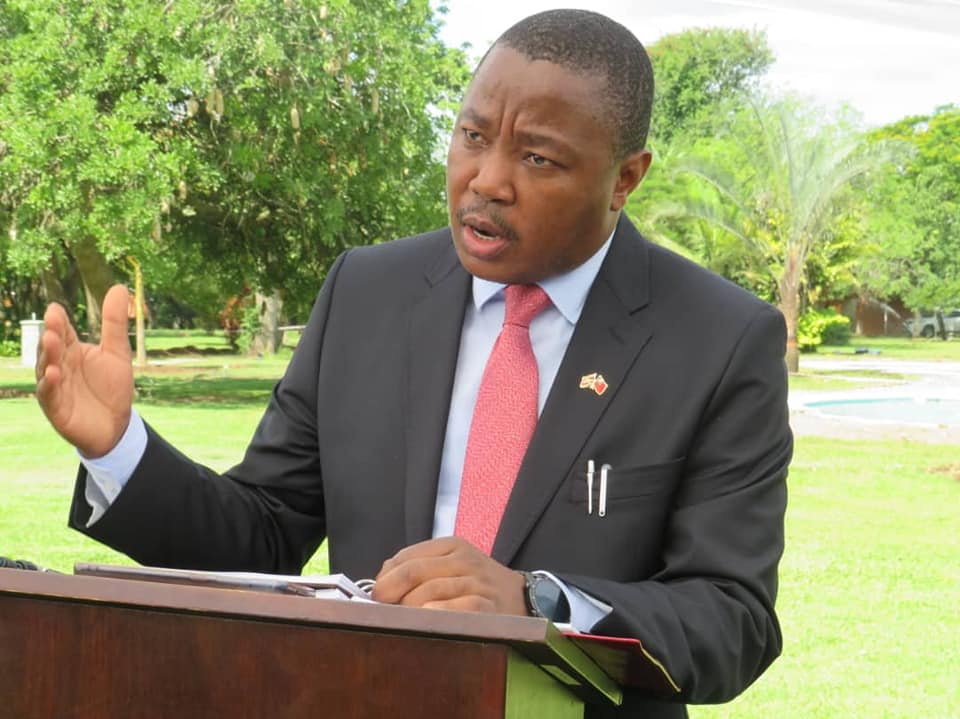A landmark ruling by the country’s courts has clearly directed that no government employer should stay at home while on suspension for a period exceeding six month. The recent ruling by the Industrial Court of Appeal clarifies that civil servants on suspension must return to work after six months if their disciplinary cases remain unresolved.
Comprising Justices Nkosinathi Nkonyane, Dumsane Mazibuko and Andreas Lukhele, the court found that although the Civil Service Commission (CSC) was correct to challenge an earlier Industrial Court decision that halted disciplinary action, the constitution still compels the lifting of suspensions after six months.
In short, the disciplinary process may continue, but the worker must be back at work.
At the heart of the dispute was a provision of the Constitution, which states that the matter of a suspended public officer must be finalised within six months, failing which the suspension lapses. The lower court had interpreted this to mean that disciplinary action could no longer be pursued after the six-month window, effectively shielding officers from prosecution within the civil service system.
The Industrial Court of Appeal, however, decisively disagreed, stressing that the purpose of the provision is to curb indefinite suspensions, not to provide immunity for misconduct.
Justice Nkonyane, delivering the judgment, explained that the “mischief” addressed by Section 194(4) was the prolonged suspension of public officers without resolution, often leaving them in professional limbo and on full pay for years.
“It does not matter whether the matter of the public officer is pending before the criminal courts, provided that it is a matter for which the public officer is suspended and it has not been finalised within six months, the suspension is expected to be lifted by the suspending authority,” the judge stated.
The judgment stemmed from a case involving firefighter Sizwe Mbongwa Dlamini, who was suspended in June 2021 for allegedly assaulting and intimidating a supervisor. His disciplinary case was only initiated three years later, in August 2024 and he approached the Industrial Court, arguing that under Section 194(4) of the Constitution, his case was time-barred and that the disciplinary hearing notice issued against him was invalid.
The Industrial Court agreed, declaring that the charges were of no legal force or effect.
That decision set off a wave of similar claims from other suspended civil servants, including senior officials in the ministry of health, whose hearings were halted on the same grounds.
The CSC however, joined by the ministry of housing and urban development and the attorney general, appealed the ruling, arguing that the lower court had misinterpreted the law.
The Appeal Court overturned the Industrial Court’s ruling, agreeing with the CSC that disciplinary action could still proceed even after the six-month suspension period had expired.
But in doing so, the judges also drew a firm line: while the CSC retains the right to discipline, it must not keep employees on indefinite suspension.
“The suspension must be lifted after six months. The disciplining authority has no discretion in that regard,” the court ruled.
That statement, legal experts say, is the core of the ruling and fundamentally changes how government must handle disciplinary matters going forward.
“By clarifying that suspensions must end after six months, the court has effectively forced the CSC and ministries to review long-outstanding cases and reinstate employees, even while continuing to pursue disciplinary hearings,” said a senior legal eagle who requested to comment anonymously.
The ruling therefore, means government must allow employees back to work after six months, regardless of whether disciplinary or criminal proceedings are ongoing.
These include officials from the ministry of health implicated in the drugs shortage crisis scandal, having allegedly contributed to the widespread shortages in public hospitals.

Among the most prominent cases are that of Assistant Director of the Central Medical Stores (CMS), accused of authorising irregular payments amounting to over E83 million and a senior pharmacist, charged with violating procurement procedures.
“Disciplinary control remains a key managerial prerogative. It cannot be undermined by prolonged litigation or misinterpretation of constitutional provisions,” the judgment stated.
The court further pointed to the Public Service Act of 2018, which gives the CSC discretion to continue disciplinary proceedings even when criminal cases are still pending.
This the court said ensures that administrative justice is not held hostage by lengthy criminal trials.
Now two months old, the judgment comes at a time when government continues to grapple with the high cost of suspensions.
On a monthly basis, government reportedly spends about E509 673.66 on salaries for suspended employees.
Some officials have been off duty for years, drawing full salaries while waiting for disciplinary cases to conclude, with some cases lasting over a decade, without a clear resolution.
The suspended government employees hold various positions across ministries, including storemen, cleaners, accountants, drivers and fuel attendants.
Their suspensions stem from a range of offences, among them fraud, housebreaking and theft, stock theft and violations of the Prevention of Corruption Act (POCA).
Other offences include fuel theft, rape, malicious injury to property, murder and attempted murder, robbery, kidnapping, common assault and breaches of the People Trafficking and People Smuggling Act of 2009, as well as theft by false pretences.
The majority of those suspended are from the ministry of public works and transport. Within the ministry, the common offences involve fuel theft, fraud, and contraventions of the Prevention of Corruption Act of 2006. One of the suspended officials, a road overseer, has been off duty since 2015 for allegedly stealing 20 bags of cement worth about E1 500.
The ministry of agriculture has also recorded several suspensions, with seven employees currently off duty with full pay over offences such as fraud, stock theft and theft of government fertiliser. The ministry of justice and constitutional affairs follows closely, with officials suspended for fraud involving academic qualifications.
Over E4 million in salaries was also spent on 24 suspended junior police officers over two years following protest over the implementation of Phase II of the salary restructuring exercise.
During a strategic plan validation workshop held at the Royal Villas earlier this year, CSC Chairperson Simanga Mamba said the commission was reviewing all suspended cases, stating that the review formed part of the CSC’s strategic plan to enhance transparency in recruitment and improve service delivery within the civil service. Mamba told principal secretaries that memos would be issued to ministries regarding the suspended employees, highlighting that Public Service Minister Mabulala Maseko had directed the CSC to prioritise resolving the matter.
The chairperson further disclosed that the commission was also examining a report from June 2022 to determine whether the suspensions remained justified or counter-productive, assuring that the issue would be addressed in the next quarter.
Mamba called attention to the fact that effective handling of disputes and grievances was among the commission’s key priorities.










